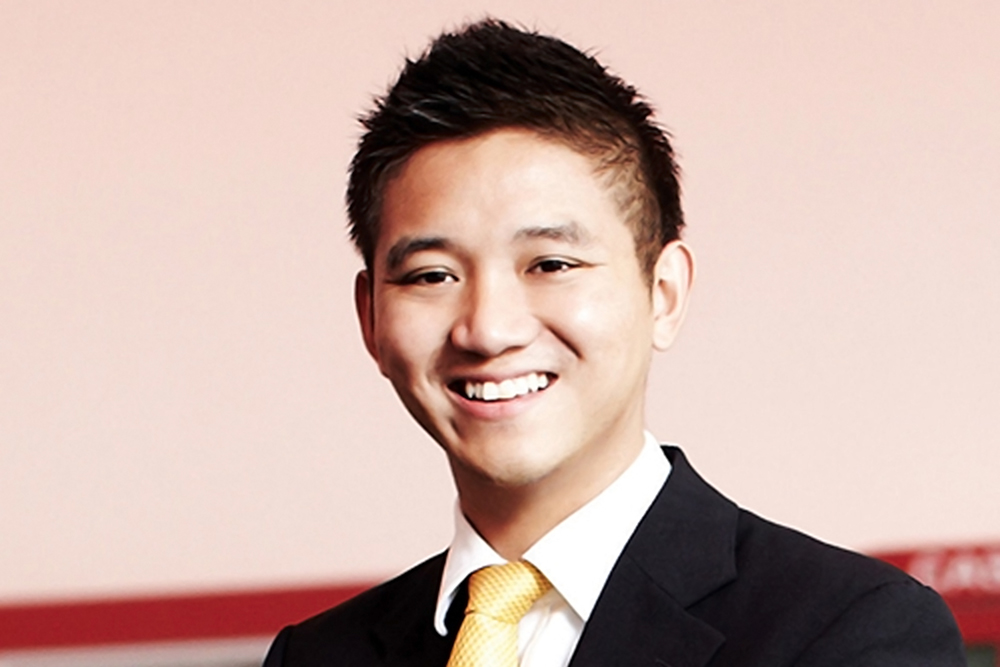2007 University of Virginia graduate Dato' Chevy Beh envisions his startup, BookDoc, transforming health care in Asia just as tech behemoth Amazon has transformed retail around the world.
BookDoc, which Beh founded in Malaysia in 2015, offers a free mobile app and online platform to help patients quickly identify, and get an appointment with, nearby health care providers. The concept was inspired by a good friend who called Beh for help after contracting dengue fever in Malaysia and struggling to find a doctor who could treat him quickly.
“I realized that information transparency is lacking in health care, which did not have a service like Yelp, Open Table or Trip Advisor,” Beh said. “I wanted to democratize the whole process.”
A little over a year after its founding, BookDoc has expanded its physician listings to 17 cities across Malaysia, Singapore and Thailand, as well as in Hong Kong. In addition to locating nearby doctors, dentists and physical therapists, users can book transportation directly in the app, thanks to partnerships with Uber; its Southeast Asian rival, Grab; and local taxi companies, designed to make patients’ journeys more seamless. In an effort to reach tourists, particularly medical tourists traveling to Asia for surgery or other treatment, Beh has also developed partnerships with AirAsia, the region’s largest airline, and Agoda, the largest hotel agreggator in Asia and part of The Priceline Group. Patients can search for hotels near their medical facilities, read ratings and reviews and see if a hotel is disability-friendly.
In addition to aiding individual patients, BookDoc has a special platform tailored to corporate health care plans, including databases of providers covered by employer plans. Companies using the app have access to an analytic dashboard to view patterns and help evaluate employees’ medical needs. A similar partnership with Malaysia’s social security agency allows individuals participating in the country’s national health care system to quickly identify participating doctors and other providers.
“Our goal is to improve access to care, improve outreach and generally improve the whole ecosystem of health care in the region,” Beh said. “We want to be a go-to platform for health, wellness and fitness for our customers.”
Beh took only three years to graduate from UVA with a double major in economics and East Asian studies, and was also the first Asian to be named an all-star polo player. After that, he worked in investment banking before returning to Malaysia to join one of the country’s top health care companies, BP Healthcare Group. There, he became increasingly interested in improving health care access in the region, especially in areas where physician-to-population ratios have slipped below the World Health Organization’s recommended minimum ratio of 1-to-1,000.
While BookDoc cannot provide additional physicians, Beh hopes that his company can correct a pervasive lack of information that keeps patients from utilizing the doctors who are currently available to them.
“There is a lot of information asymmetry, and too often people do not know what resources are at their fingertips,” he said.
The concept has caught on quickly, both among the app’s users – now totaling more than 200,000 – and among investors. BookDoc made headlines across Asia earlier this year when a member of the ruling family of Brunei, invested in the startup. His investment was the crown jewel in a very successful campaign that positioned BookDoc as one of the best-funded tech startups in Asia.
Next, Beh hopes to integrate BookDoc’s app with wearable devices such as FitBit, so that patients can track their own health data in the app. He’s also eager to expand to additional countries and hopes to launch BookDoc in five additional countries by the end of the year: China, Taiwan, Vietnam, Indonesia and the Philippines.
“We are still a young company and are just getting started,” Beh said. “We have a lot of ideas in the pipeline.”
Media Contact
Article Information
September 20, 2016
/content/alums-app-aspires-become-amazon-health-care-asia

